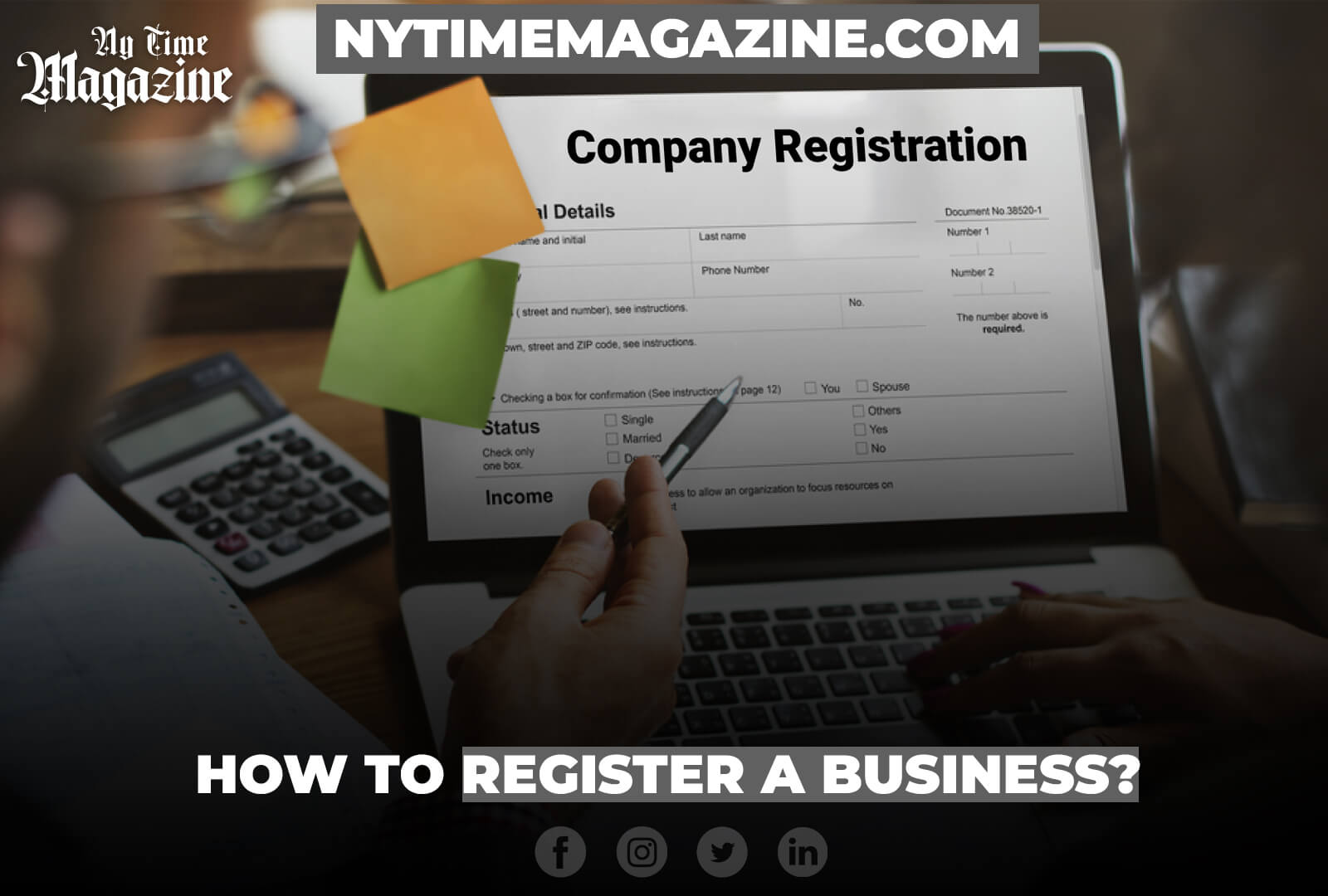Contents
Introduction
Are you ready to turn your entrepreneurial dreams into reality? Registering your business is a crucial step in establishing your venture. Although it may seem daunting, this guide will simplify the process for you. In this step-by-step guide, we’ll provide you with the resources and information needed to make business registration a breeze. Let’s dive in!
1. Name Your Business
Choosing the right name for your business is paramount. Your business name should be catchy, reflective of your brand, and clear in its purpose. If you’re struggling, there are free business name generator tools available to assist you. Once you have the perfect name, ensure its uniqueness and register it in your state of operation or file a “doing business as” (DBA) name. Many entrepreneurs opt for a DBA to operate under a different name than their registered one for branding purposes.
2. Choose a Business Structure
Selecting the appropriate business structure is vital. There are four common structures: Sole Proprietorship, Partnership, Limited Liability Company (LLC), and Corporation. Each structure has its advantages, so choose one that aligns with your business type and needs.
- Sole Proprietorship: Ideal for small businesses with a single owner. Simple and cost-effective, but offers no personal liability protection.
- Partnership: Owned by multiple individuals. Suitable for startups not expecting significant initial profits.
- Limited Liability Company (LLC): Offers personal liability protection and tax benefits. Simple to start and flexible as the business grows.
- Corporation: Formal structure with tax benefits, personal liability protection, and opportunities for external investments. Suitable for fast-growing startups.
3. Determine if You Need to Register Your Business
Surprisingly, not all startups need to be registered immediately. Sole proprietorships might not require state registration in certain cases. However, forming an LLC or corporation provides numerous advantages, including safeguarding your personal assets. Consider the long-term benefits when making this decision.
4. Register for Taxes for Your Business
To ensure smooth tax operations, obtain an Employer Identification Number (EIN), which acts as your business’s social security number for tax reporting. Even if you don’t plan to hire employees immediately, having an EIN is beneficial. Additionally, register for state taxes, such as sales and corporate income taxes. Consulting a tax professional ensures you comply with all necessary state and federal tax requirements.
5. Obtain Permits and Licenses for Your Business
Permits and licenses are essential and vary based on your location and business type. Conduct a business license search to identify the necessary permits for your operations. Failing to obtain proper licensing can lead to severe consequences, including fines or business closure. Partnering with a business license service can streamline this process and ensure your business operates legally and smoothly.
Conclusion
Congratulations! You’ve successfully navigated the process of registering your business. By following these steps and seeking professional advice when needed, you’ve set a strong foundation for your entrepreneurial journey. Best of luck with your business endeavors!
FAQs
1. What is the first step in registering a business?
The initial step in registering a business is selecting a unique and catchy name. Ensure the name aligns with your business purpose and isn’t already in use. Once decided, you can register it with the appropriate authorities.
2. How do I determine the right business structure for my venture?
Choosing the right business structure depends on your business goals and the level of liability protection you need. Sole proprietorships, partnerships, LLCs, and corporations offer different advantages. It’s advisable to consult with a legal or financial expert to make an informed decision.
3. What is an EIN, and why do I need one?
An Employer Identification Number (EIN) is a unique nine-digit number assigned by the IRS to identify your business for tax purposes. Even if you don’t have employees, an EIN is necessary for opening a business bank account, filing taxes, and maintaining legal compliance.
4. Do I need a business license to operate?
Yes, most businesses require licenses or permits to operate legally. The specific licenses depend on your business type and location. Conduct thorough research and obtain the necessary permits to avoid legal issues in the future.
5. How long does it take to register a business?
The time to register a business varies based on the business structure and the state/country in which you’re operating. Some registrations can be completed online and may take a few days, while others, especially for larger corporations, might take several weeks.
6. Can I change my business structure after registration?
Yes, it’s possible to change your business structure after registration. However, it involves legal processes and might have tax implications. It’s advisable to consult with legal and financial professionals before making such a change.
7. What tax responsibilities does my business have?
Businesses are typically responsible for federal, state, and local taxes. These may include income tax, sales tax, and employment taxes if you have employees. It’s essential to keep accurate financial records and file taxes on time to avoid penalties.
8. How can I protect my business idea and intellectual property?
Intellectual property protection is crucial for businesses. You can protect your ideas, inventions, and brand through patents, trademarks, and copyrights. Consulting with an intellectual property attorney can guide you through the process of safeguarding your creations.
9. Is business insurance necessary, and what does it cover?
Business insurance is highly recommended to protect your company from various risks, including property damage, lawsuits, and employee injuries. The coverage varies; common types include general liability, property, and professional liability insurance. Tailor your insurance policy according to your specific business needs.
10. How often do I need to renew my business registration and licenses?
Business registration and licenses typically need to be renewed annually. It’s crucial to keep track of renewal dates and comply with the requirements to avoid legal complications. Automated reminders or calendar alerts can help you stay on top of renewals.



